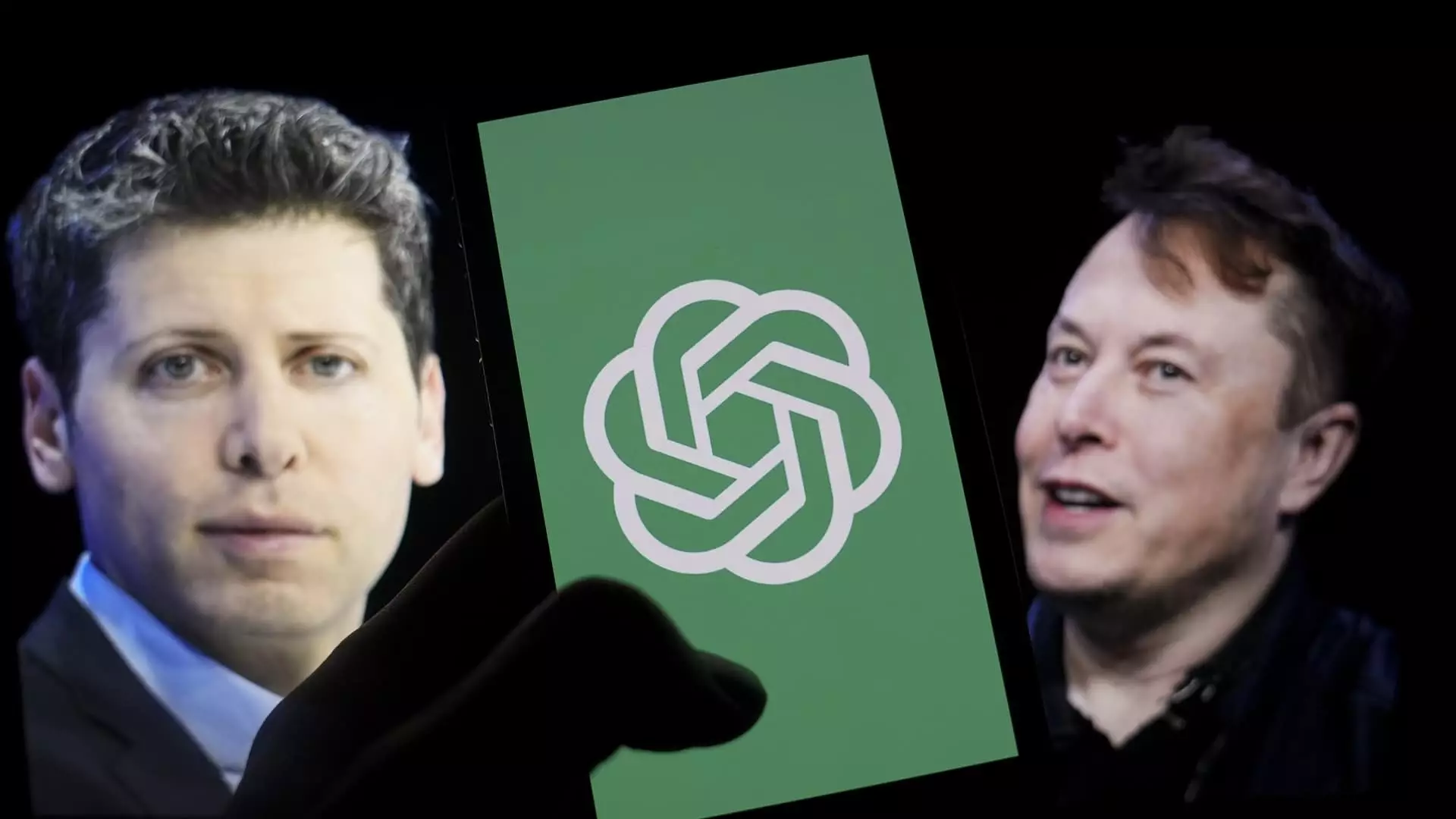The ongoing legal struggle involving Elon Musk, OpenAI, and related corporate entities could shape the future landscape of artificial intelligence dramatically. Musk’s legal representatives have taken significant steps to challenge OpenAI’s transition to a completely for-profit framework, claiming that this move harms competition and restricts funding opportunities for rival ventures. This article delves into the intricate dynamics of the lawsuit while contextualizing the implications for the artificial intelligence industry at large.
The conflict began to intensify when Musk, alongside his AI venture xAI and former OpenAI board member Shivon Zilis, filed a request for a preliminary injunction against OpenAI. This injunction seeks to prevent the company from pursuing its transformation into a fully for-profit operation and to stop the alleged effort to stifle competition by requesting that investors refrain from supporting rival initiatives like Musk’s xAI. The legal actions suggest not only personal grievances but also a strategic battle for dominance in the burgeoning field of AI.
Musk’s initial legal actions took place in a San Francisco state court in March 2024, a move he subsequently redacted. Upon refiling in federal court several months later, Musk’s legal team, led by attorney Marc Toberoff, escalated their claims. They argue that OpenAI’s actions could infringe upon federal racketeering laws and violate antitrust regulations primarily through coordinated efforts with Microsoft. At the core of Musk’s argument is a belief that OpenAI is engaging in anti-competitive tactics detrimental to the innovation landscape of AI.
Musk’s legal filing posits that OpenAI is effectively establishing a “group boycott” which restricts xAI’s access to crucial investment capital. The attorneys allege that investors are being coerced into agreements that limit their support for Musk’s venture, which has incited a sense of urgency around maintaining competitive equity within the AI sector. As generative AI grows—projected to surpass $1 trillion in revenue within a decade—this situation underscores significant concerns about market fairness and innovation.
Musk argues that OpenAI’s current structure amounts to market manipulation, restricting vital resources that rival companies require to thrive. The movement toward a fully profit-driven entity also casts doubt on OpenAI’s original mission. Founded as a non-profit in 2015 and later adopting a capped-profit model, OpenAI’s shift raises questions regarding its commitment to open and competitive AI development. Musk’s legal arguments suggest that such a restructuring may serve only the interests of a few corporate titans rather than the broader developer ecosystem.
Central to Musk’s contentions is Microsoft’s considerable investment in OpenAI, which reportedly amounts to nearly $14 billion. This relationship during a critical time for AI development poses complex implications for how technology companies collaborate and compete. Musk’s allegations point to an emerging pattern in the technology sector: the intertwining of corporate investments with potentially anti-competitive outcomes that could stagnate innovation.
While Microsoft has refrained from making public comments about the lawsuit, the implications of the alleged interlocks between its board and OpenAI are being scrutinized. Advocacy for regulatory oversight over such relationships has intensified, with the Federal Trade Commission (FTC) expressing interest in examining the partnerships within the AI sphere. Musk’s legal motion underscores the urgency for tight regulations in AI investments to ensure that competition remains healthy and unfettered.
As Musk’s xAI strives to carve its niche, the broader AI ecosystem faces a watershed moment where profitability and ethical accountability must intersect. The current legal dispute characterizes a burgeoning anxiety surrounding AI innovation, with questions about who ultimately reaps the rewards of advancements. OpenAI’s transition to a fully for-profit model could set a precedent that impacts not only Musk’s ambitions but the future of AI initiatives across the globe.
This lawsuit serves as a reminder of the contentious nature of technological advancement in an era where corporate motivations often clash with the philosophical underpinnings of innovation. As multiple stakeholders, including large-scale tech firms, small startups, and regulatory bodies, vie for influence, the outcome could determine whether the AI landscape remains competitive or becomes dominated by a handful of major players.
The unfolding legal drama encapsulates critical issues regarding competition, innovation, and the motivations driving the technology sector. Musk’s challenge of OpenAI entwines personal ambition with broader concerns about the ethical direction of artificial intelligence. As the case progresses, the implications for investors, developers, and consumers will be profound, paving the way for discussions about accountability and competition in a rapidly evolving industry. In an arena where ideas can swiftly turn into formidable business models, safeguarding a fair and innovative environment is now more essential than ever.


Leave a Reply